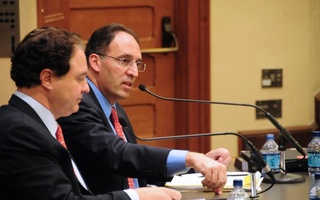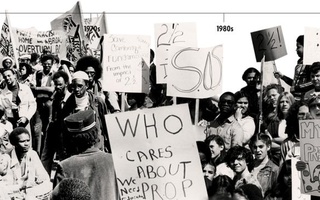Last semester, Harvard students marched the streets of Boston protesting the MBTA’s proposed fare hike. But since the increases went into effect July 1, many Harvard students and employees say that the hikes have not had a significant effect on their lives.
After months of debate, the MBTA and Massachusetts Department of Transportation enacted a 23 percent overall fare hike, which increases subway fare with a CharlieCard from $1.70 to $2, to help close a $185 million budget deficit. The MBTA also increased fares on the commuter rail and cut some services.
Jackson F. Cashion ’13, a longtime advocate against MBTA fare increases, said, “The 23 percent fare increase affects us just as much as it does everyone else.”
Saying that the MBTA can exercise several options for alleviating its debt, Cashion suggested that Harvard could chip in financial support.
“Harvard gets a huge benefit from having the T station right here,” said Cashion, an inactive Crimson editor. “I think there’s a lot of great ideas out there about trying to get public institutions that really get a significant benefit from the T to try to pitch in more.”
Cambridge City Councillor E. Denise Simmons told The Crimson on Monday that she is concerned about the fare increases. “Of course this has a real impact on residents of Cambridge,” she said. “In particular, the fare increases are going to affect our seniors and are going to affect our students.”
Despite the increase, Harvard has maintained its transit subsidies for employees. Through the the University’s Commuter Choice Program, Harvard provides 50 percent subsidies on monthly CharlieCard passes for eligible faculty and staff. The rest of the cost is taken directly out of the staff members’ paychecks on a pre-tax basis.
Jaime Ayala, a dining hall worker in Lowell House, commutes for 30 minutes on the 96 bus to and from his home in Medford each day. He said he appreciates the discount from the University and the accessibility of the T for his commute. The increases in fares, he said, have not affected him significantly.
“Price changes haven’t been that big of a deal,” Ayala said. “[The University discount] is a great benefit. Otherwise it would be so much harder to get to work and find parking.”
Students at Harvard graduate schools, but not at the College, are eligible for discounted semester-long T passes. Several Boston colleges and universities participate in the semester-pass program as well, including Boston University, Boston College, and Northeastern University. The schools subsidize the passes at various levels, MBTA spokesperson Joe Pesaturo said.
At MIT, not only can students receive subsidized monthly passes, but their student IDs double as CharlieCards.
Many students at the College said that although almost every Harvard College student lives on campus rather than commuting to school, the College should still subsidize MBTA passes to encourage them to travel more in the greater Boston area.
“I think that even though we’re so close to Boston, a lot of Harvard students don’t get to appreciate that,” Cashion said.
Cashion suggested that a subsidized CharlieCard tied to the Harvard College ID, similar to MIT’s, would not only urge students to explore but also contribute financially to the struggling MBTA.
“It would be a great way for the University to help contribute to the public transportation that we enjoy here in Cambridge,” Cashion said.
Read more in News
Science Center Plaza Construction Disrupts PathwayRecommended Articles
-
Faust Names Fundraising VPEDITOR'S NOTE : This story has been updated . Tama
-
 Alums Battle to Fill Kennedy Senate Seat
Alums Battle to Fill Kennedy Senate Seat -
 The Evolution of Activism
The Evolution of Activism -
 Future Islands Sing Beautifully of Heartbreak
Future Islands Sing Beautifully of Heartbreak -
Protesters Rally in SomervilleOver 100 people gathered in front of Somerville High School to protest service cuts and fare increases proposed by the Massachusetts Bay Transportation Services before a public hearing with the MBTA scheduled to be held on Tuesday.













